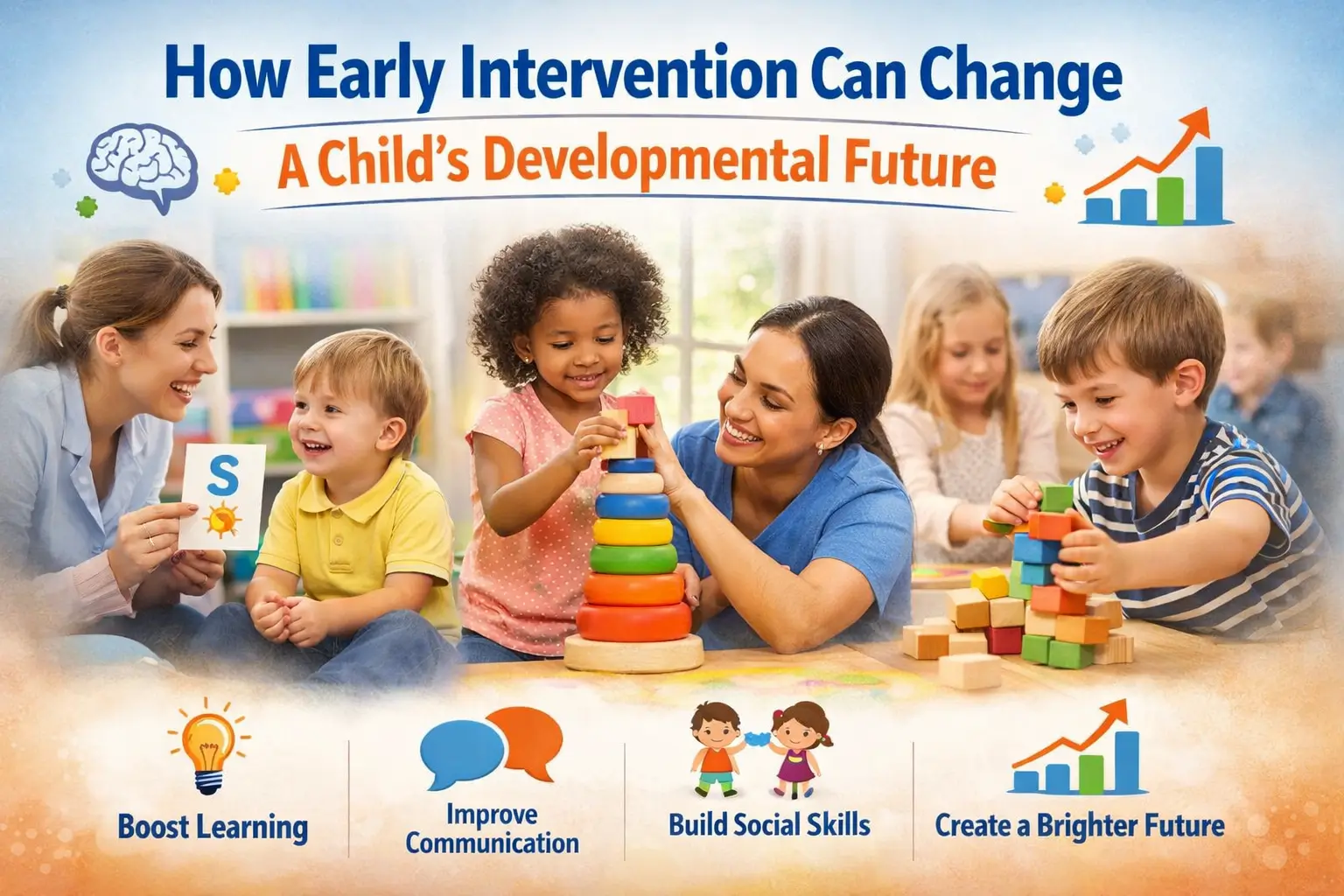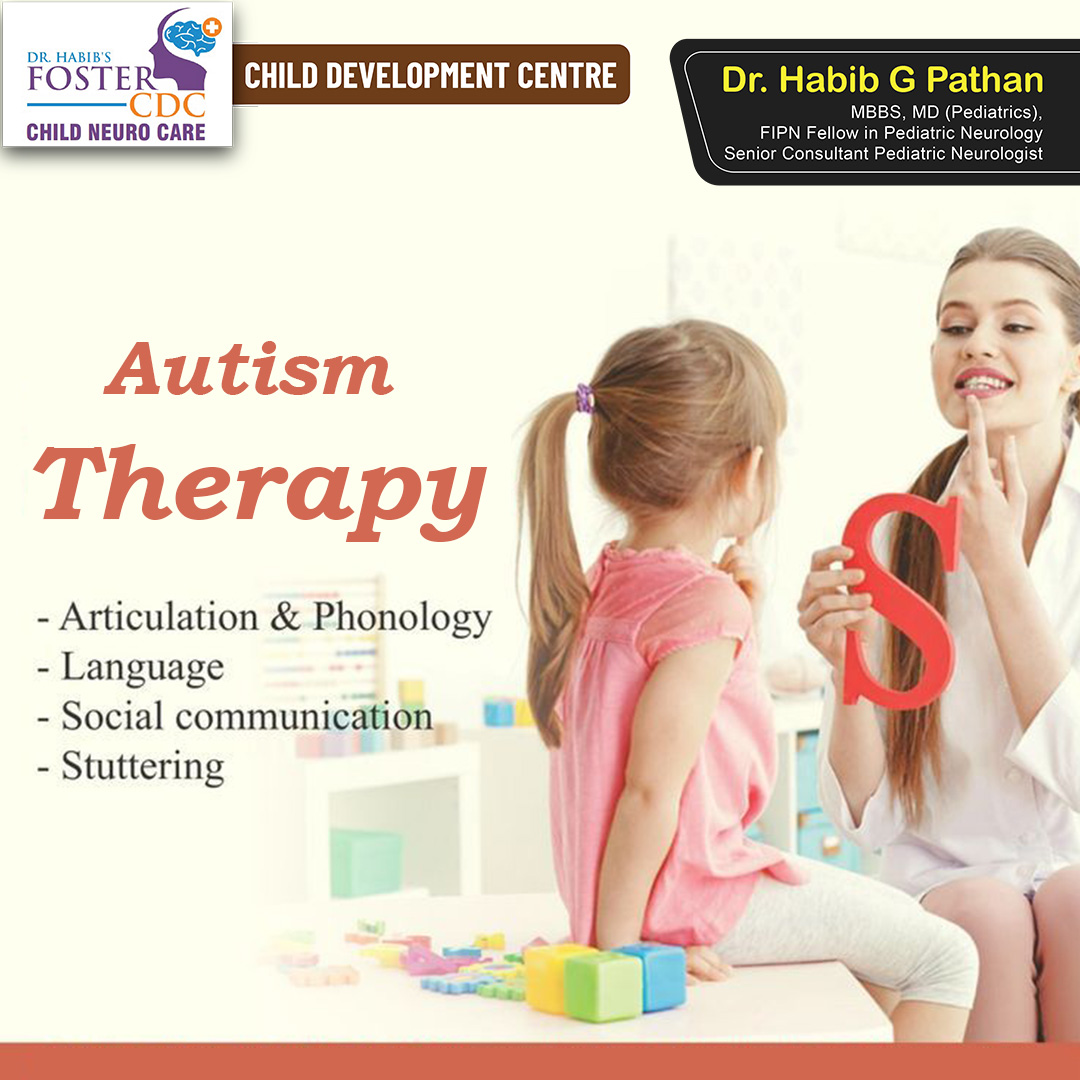
What are the Early Signs of Speech Difficulty in Children?
Speech
difficulty symptoms: Communication is one of the most important milestones in a
child's early development. Children naturally begin to understand and use
language to express themselves as they grow. However, some children may
experience speech difficulties that can hinder this process. Identifying these
issues early is crucial, as timely intervention can significantly affect a
child's ability to communicate effectively.
In
this blog, we will explore speech difficulty symptoms in children and how
parents can recognize them, and what steps can be taken to support a child’s
communication journey.
1. Delayed Speech Development
One
of the earliest and most obvious speech difficulty symptoms is delayed speech
development. Children typically begin babbling by 6 months, say their first
words between 12 and 18 months, and start combining words into short sentences
by the age of 2. If a child is not meeting these speech milestones, it may
indicate a speech delay. For example:
- By 12 months,
they may not use any words or even babble.
- By 2 years,
they may have fewer than 50 words in their vocabulary and are not
combining words into simple phrases.
2. Limited Vocabulary for Age
While
it’s normal for children to learn words at different rates, a noticeably
smaller vocabulary compared to their peers could be an early sign of speech
difficulty. By age 3, children should have a vocabulary of at least 200 words
and should be able to form three to four-word sentences. If a child struggles
to learn new words or uses only a small set of familiar ones, it may indicate a
language delay or speech disorder.
3. Unclear Speech or Poor Pronunciation
Although
toddlers and young children often make speech errors, such as mispronouncing
certain sounds, persistent unclear speech that makes it difficult for others to
understand can be a red flag. For instance:
- By age 2,
about 50% of a child’s speech should be understandable to people outside
their immediate family.
- By age 3,
most of their speech should be understood by unfamiliar listeners.
If
others struggle to understand your child's speech beyond these ages, it could
suggest issues with articulation or phonological disorders.
4. Lack of Interest in Communication
A
child who shows little interest in communicating with others or doesn’t respond
when spoken to may have speech or language difficulties. They might not use
gestures like pointing, waving, or nodding to communicate, and they might not
engage in typical back-and-forth play, which is important for social and
language development.
5. Difficulty Following Instructions
Children
with speech difficulties may also struggle with understanding language, which
can show up as difficulty following simple instructions. For instance:
- By 12-18 months,
a child should be able to follow simple one-step commands, such as
"come here" or "give me the ball."
- By 2 years,
they should understand and follow two-step instructions like "pick up
the toy and put it on the table."
If
a child consistently has trouble understanding and responding to these
directions, it could be a sign of a receptive language issue.
6. Trouble Making Certain Sounds
Speech
sound disorders may cause children to have trouble with specific sounds, such
as "r," "s," or "th." For example, if a child
replaces sounds with others (e.g., saying "wabbit" instead of
"rabbit") or leaves out sounds (e.g., saying "ca" instead
of "cat") beyond the expected age, this might indicate difficulty
with articulation.
7. Stuttering or Difficulty with Fluency
Stuttering
is another sign of a speech disorder that typically becomes noticeable between
the ages of 2 and 5. Children who stutter may:
- Repeat sounds,
syllables, or words (e.g., "c-c-can I have...").
- Prolong sounds
(e.g., "sssssssoon").
- Have difficulty
getting words out, often accompanied by visible tension or frustration.
While
occasional repetition is common in young children, frequent and noticeable
stuttering may require intervention.
8. Monotone or Unusual Voice Quality
A
child’s voice should sound typical for their age, with a natural variation in
pitch, loudness, and rhythm. If a child speaks in a monotone voice, has a nasal
tone, or frequently sounds hoarse, it could indicate a voice disorder. These
issues are less common than articulation problems but are still important to
address.
When to Seek Help
If
you notice any of these early speech difficulty symptoms, it’s essential to
seek help from a professional. A speech-language pathologist (SLP) can evaluate
your child’s speech and language development and create a plan to help them
overcome their challenges. Early intervention can have a significant positive impact,
enabling your child to develop stronger communication skills as they grow.
Supporting Your Child’s Speech Development
Parents
can take several steps to support their child's speech development:
- Talk to your child
regularly: Engage them in conversations,
describe your activities, and narrate your day to help expose them to
language.
- Read together:
Reading books aloud helps children learn new words, sounds, and sentence
structures.
- Encourage play:
Play encourages communication and can help children practice social
interaction and language use.
- Be patient and
encouraging: If your child is struggling to
communicate, avoid correcting them too harshly or rushing them. Offer
gentle guidance and model correct speech.
Bottom Line
Speech
and language development is a key aspect of a child’s overall growth. While
it’s natural for children to develop at different rates, persistent speech
difficulties can be a sign of a deeper issue. By recognizing the early signs of
speech difficulty and seeking professional help when needed, parents can give
their children the best possible start in life.
Early
intervention is key, and with the right support, most children can overcome
speech difficulties and develop strong communication skills for the future.









